Eco-Heroes
Youth-led Environmental Action in the Heart of Rural Thailand
28 October 2023
By Chukwudi Michael
Youths can do better in creating environmental awareness no matter how far they are from the environment. Isan Youth Leaders travel from Thailand’s mainland to the coastline to learn about coastal environmental issues and help solve them.
Our universe is full of beautiful landscapes, plants, animals, and humans. If climate change has the power to interrupt and cause huge damage to our universe. As heralds of our future generation, we ought to do everything we can to sustain the lives of all organisms and save our planet. According to Isan Youth Leaders (IYL), this is what Thai youths from the Northeastern Thai region, fondly known as Isan, want.
Isan is densely populated despite being a rural community. Hence, it is one such reason it was regarded as the “Heart of Thailand”. Isan sits on vast flat terrain bordering Cambodia and Laos, where communities preserve their beautiful landscapes in the pearly grains of Jasmine rice they grow and harvest. However, the challenges the Isan community faces include drought and flooding due to abnormal rainfall which affects crop yields.
Isan Youth Leaders at a Glance
IYL was borne out of the idea of Miss Thanwarat Khonphian, who’s colloquially referred to as Peach. She and several passionate youths formed IYL in 2021 to bring students from Northeastern and Southern Thailand to learn about environmental consciousness. Through this youth organization, Peach wants to teach students how to communicate English fluently while getting involved in environmental issues so that they can give back to their respective communities.
IYL has no age limit for its members. Peach believes that even a four-year-old can do just a little action to care for the environment. The organization is made up of team members ranging from the Young Southeast Asian Leaders Initiatives (YSEALI) alumni, students from Khon-Kaen University, students from Chiang Mai University Demonstration School, and students from Mahasarakham University as well as staff from its American Corner.
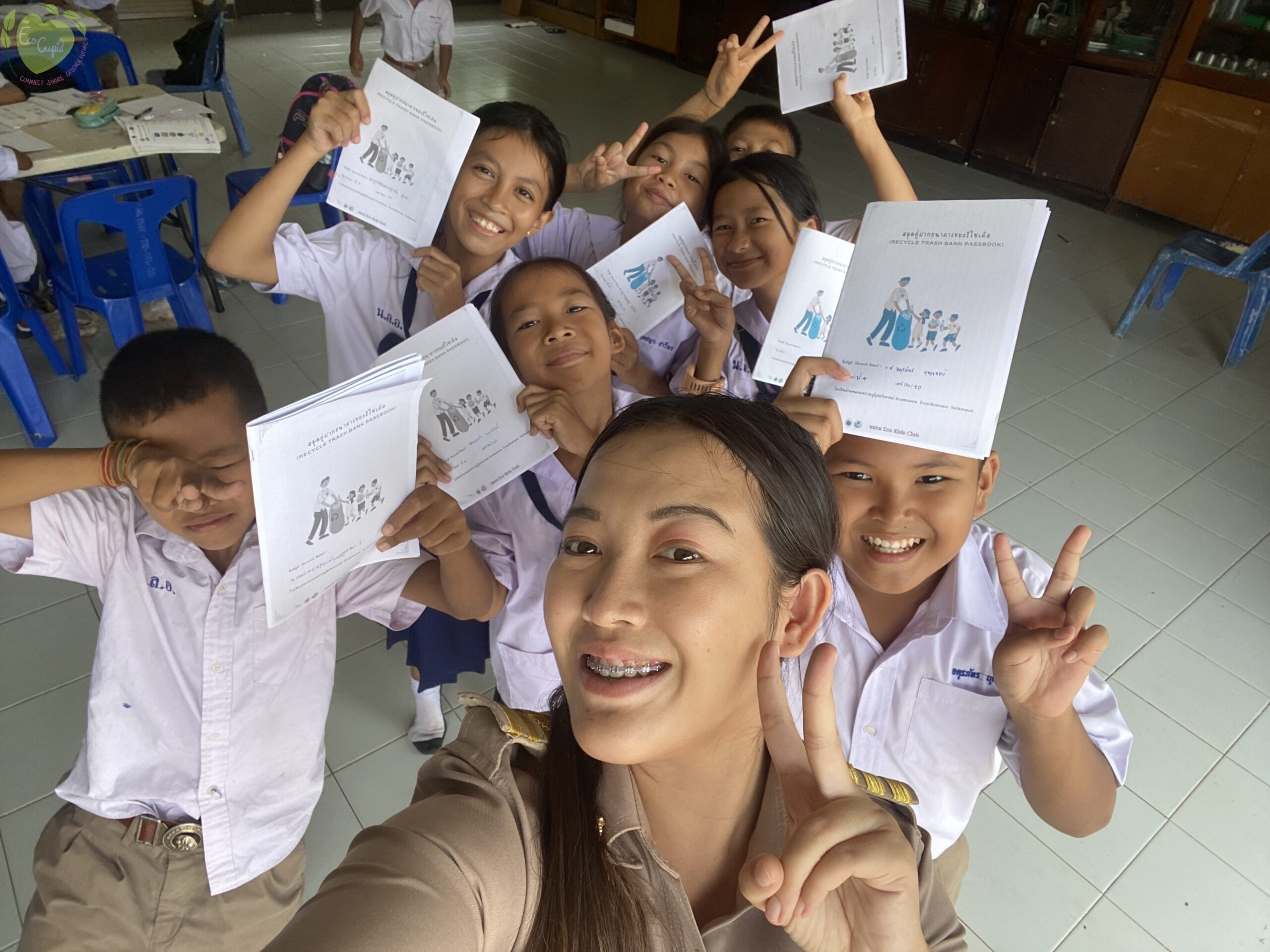
Isan Needs Hometown Eco-Heroes
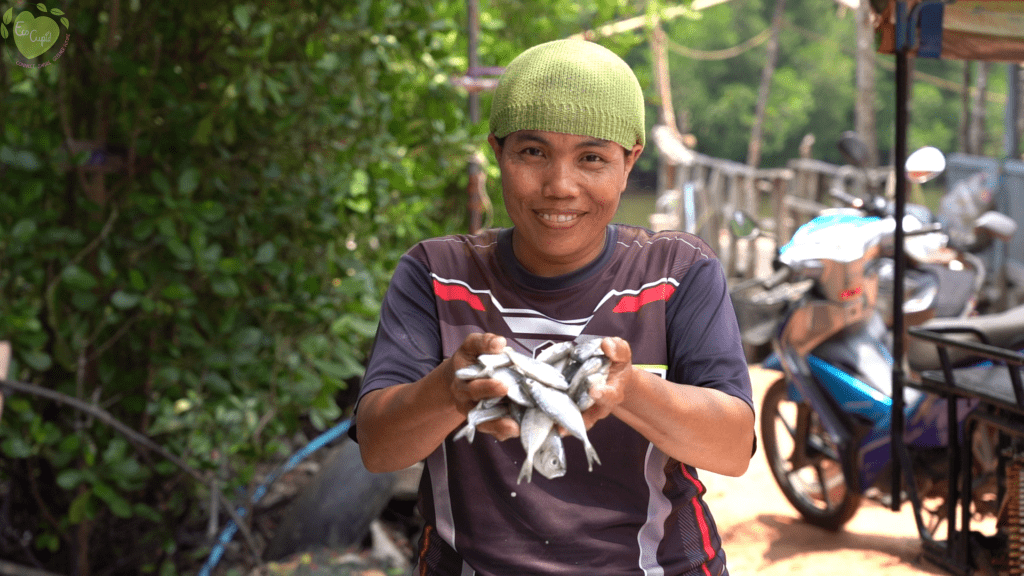
Many people from the Isan community migrate to Bangkok (the capital city of Thailand) due to the challenges they are facing with water scarcity, flooding, poverty, and a high rate of unemployment. Migration allows them to be gainfully employed and live good lives.
“People are leaving the community because there is still poor quality of education,” says Peach.
The 26-year-old English teacher at Ban Nonglad Ratuthitwittayakhom School maintains that the people of Isan need quality education for them to thrive better in society and improve what they are good at.
As a teacher, she notes that from her experience, the region is facing numerous challenges, of which climate change tops the list of those faced by the community today. However, not many in the community are interested in the issues of the environment because of a lack of awareness.
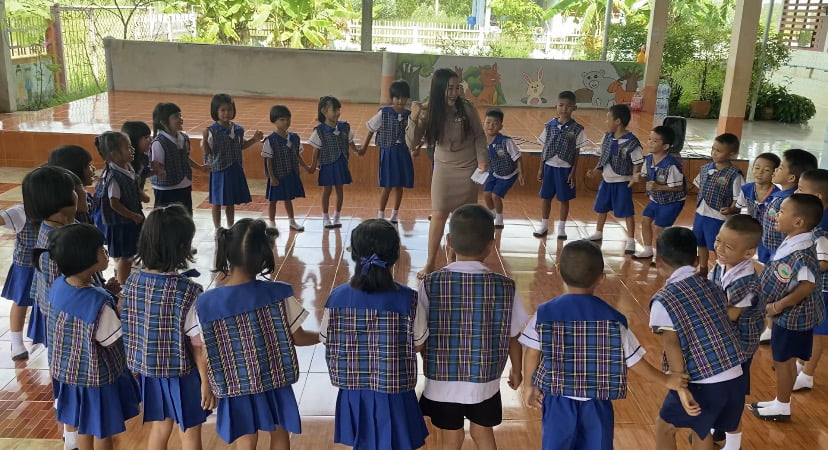
By forming IYL, she believes that they can nurture more youth leaders by educating them to be motivated, passionate, and zealous to create a positive change starting from their hometowns.
“As young leaders, what we ought to do is take care of our environment”, says the proud resident of Sakon province, Thailand.
Youths joining IYL came from different regions to learn about environmental issues. They would then return to their communities to share what they have learned with the local people. Local communities and NGOs are commonly invited to speak with IYL’s youths to impart traditional ecological knowledge. This enormously contributes to dealing with global change and guides natural resource management.
IYL initiatives
Peach gladly took EcoCupid on a journey of how Isan youths are contributing to making the earth fit for every species of organisms to coexist, thereby maintaining the sustainability of lives and natural resources.
IYL began its first project in 2021 tagged GRENN-GREEN through an online workshop on environmentally-friendly eating, where they taught attendees how to avoid meat meals. This was in a bid to make people eat healthier and eco-friendlier to save animals and lower their greenhouse gas (GHG) emissions. Meat generally has a considerably higher carbon footprint than plant-based food.
This was followed by an online waste management project during the COVID-19 pandemic. Youths learned how to properly separate waste from speakers who are specialists in waste management. Improper waste management is not only detrimental to human health but can pose a threat to the environment in the form of pollution and GHG emissions, intensifying climate change issues, if not well managed.
“Climate change is not a future phenomenon. It is here with us, and we need to take action now,’’ says Peach as she understands the urgency of tackling climate change.
Through IYL, the students learn how to make judicious use of the media. In 2022, they had a public speaking session on environmental issues. The focus was on how people should keep their awareness about environmental issues such as using fewer plastics, eating less meat, and using electric cars. This was followed by a waste management workshop and camp for environmental leaders.
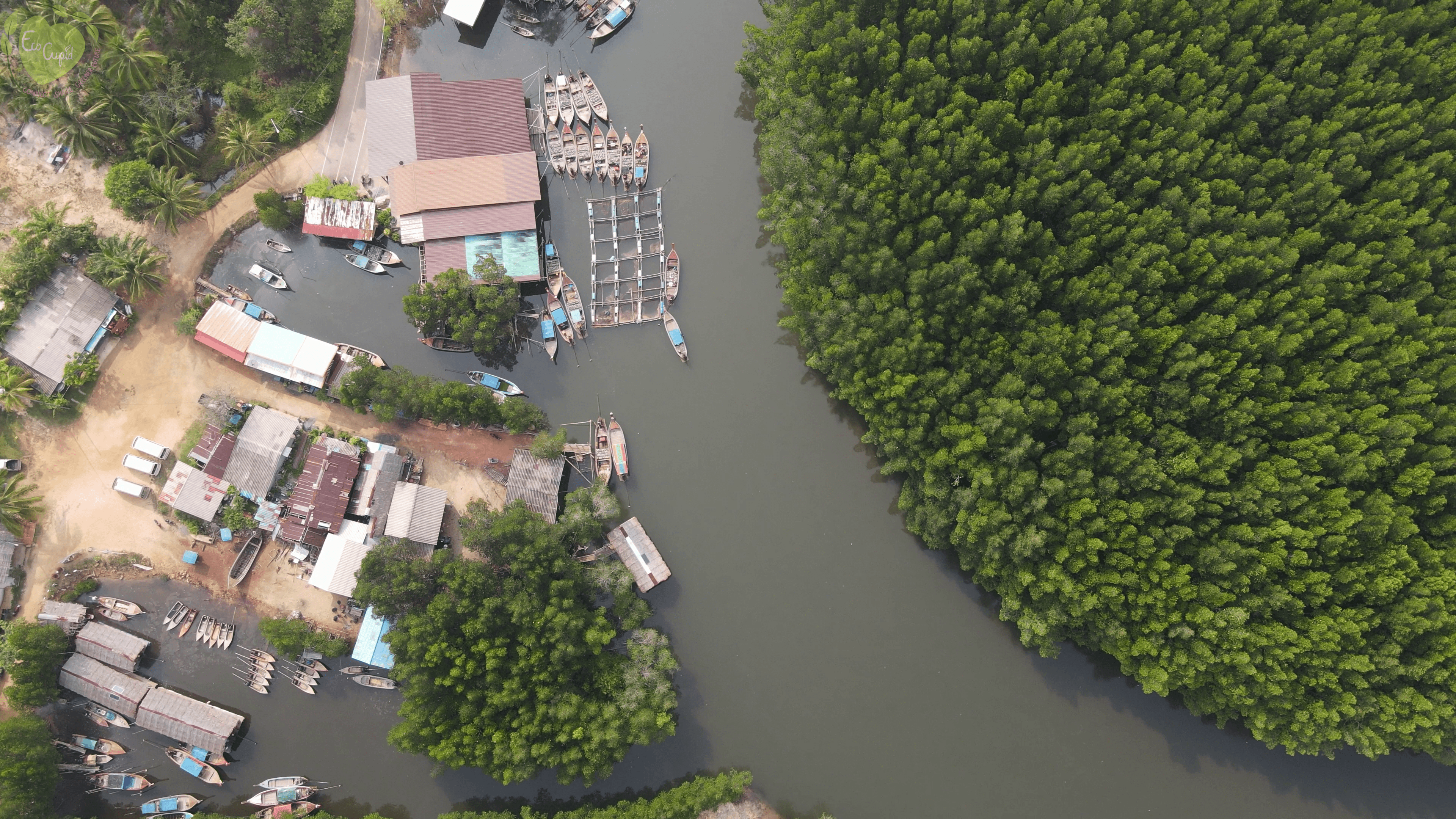
In 2023, IYL brought about 20 youths to visit the Ban Nam Rap mangrove forest community in the Southern Thailand province of Trang. She wanted her students to appreciate that their actions can affect the environment far away. The simple act of eating seafood from Southern Thailand contributes to the environmental issues faced in mangroves and coastal ecosystems there. Despite being far away in Isan, IYL’s youth members were eager to visit and learn what they could do for their environment.
With help from EcoCupid’s media workshop, IYL youths learned how to make videos at every stage beginning from pre-production, production, and post-production. The youth were tasked to prepare scripts about environmental issues in Ban Nam Rap about forests, crabs, seagrass, and community livelihoods. The community was even invited to watch the films as a means for the youth to convey their understanding and concerns about the environment to the villagers. From these videos, the locals can understand that they can change the environment through lifestyle changes that will impact their community positively.
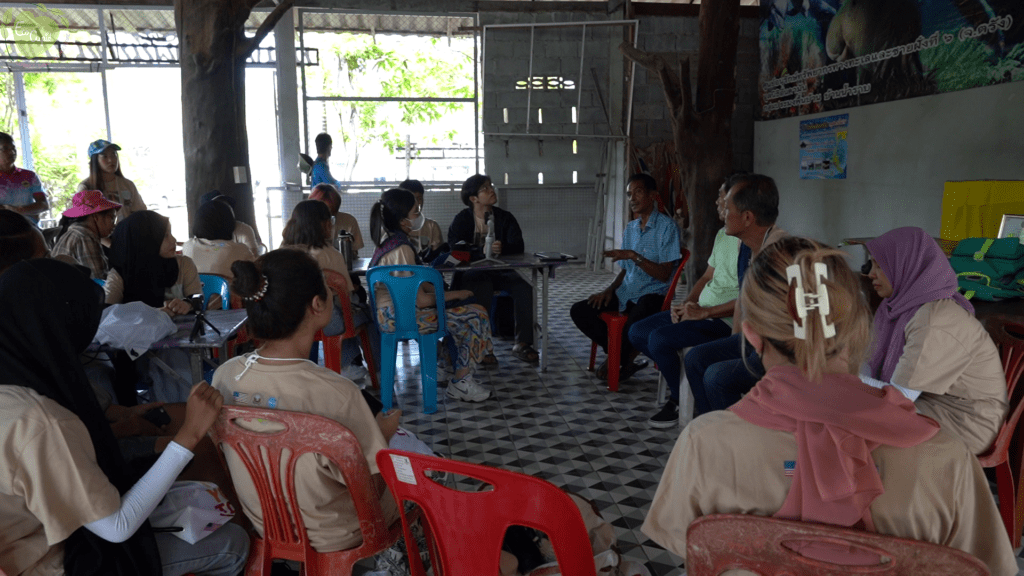
Peach’s Message to Environmentalists
If Peach became the Minister of Environment, she would form an environmental education policy and curriculum in every school and college in all Asian countries. Although she acknowledges it will be a demanding task right from the beginning, she believes as a young leader herself she can achieve anything she wants to achieve believing in herself.
Peach believes that youths should build their knowledge and skills and direct them toward solving environmental issues. Action, she maintains, goes beyond words when we want to keep the issues of climate change in check. Hence, young leaders need to gain leadership experience on environmental issues and think about how to create a sustainable world. Age, she continues to state, isn’t a barrier.
“Do the little you can, to help your planet,” says Peach.
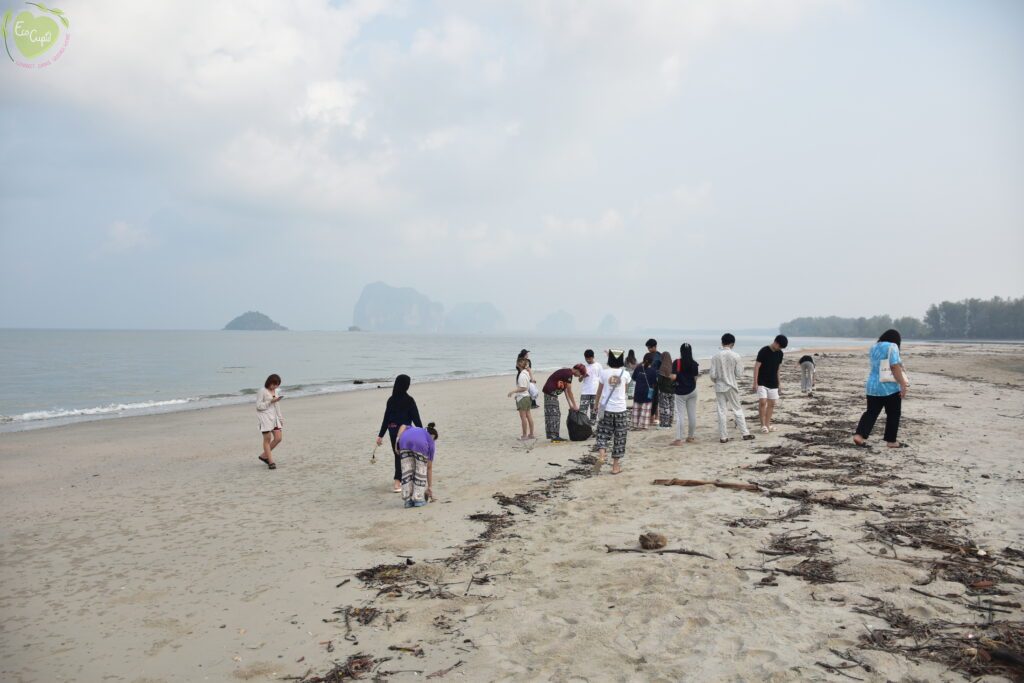
Although she says it might be somewhat difficult at the start, embrace it with joy and forge ahead. As a teacher, she has always tried to kickstart her teaching with sustainable terms. She says these terms will live with the children as they grow and they’ll grow to be useful to themselves and the society in the future in matters of environment.
The young teacher envisions a future devoid of plastic pollution, where youths can champion action on environmental issues. As an environmental leader, she is calling on everyone to join the campaign projects on environmental issues.
(Edited by Amanda Tolentino & Bryan Yong)
References
Agarwal, B. 2001. Participatory exclusions, community forestry, and gender: an analysis for South Asia and a conceptual framework. World Development, 29 (10):1623-1648.
Aruna, G., Kavitha, B., Subashini, N., Indira, S. 2018. An observational study on practices of disposal of waste garbage in Kamakshi Nagar at Nellore. Int’l J. Appl. Res. 4, 392-394.
Petrovic, Z., Djordjevic, V., Milicevic, D., Nastasijevic, I. and Parunovic, N. 2015. Meat Production and Consumption: Environmental Consequences. Procedia Food Science, 5, 235-238.
Our featured Eco-Hero
Isan Youth Leaders is an environmentally-conscious education NGO that teaches its members English while learning about local environmental issues. Based in Northeastern Thailand, Isan Youth Leaders focuses on out-of-classroom experiences that encourages their students to take positive action for the environment while practicing English. You can reach out to them at https://www.facebook.com/isanyouthleaders
This article was produced with support from YSEALI SEEDS for the Future grant 2023.


Chukwudi Michael
Michael Chukwudi is a Research Student (MSc) at Universitas Jenderal Soedirman, Indonesia. He’s a Guest Lecturer in the Faculty of Cultural Studies (took students on African Literature) in his Postgraduate university (Unsoed). Michael Graduated with a First Class Hons. Bachelor’s degree from the Department of Applied Biology, Ebonyi State University, Abakaliki, Nigeria. He is actively involved in research to ensure the conservation of animal species that are already threatened by extinction (especially Sea Turtles).
